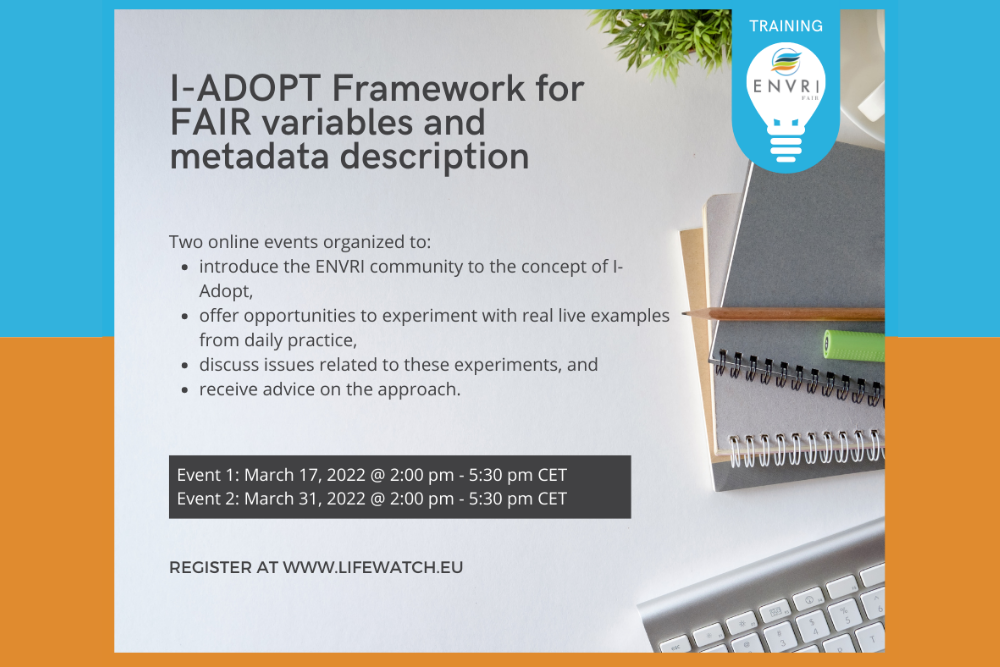
I-ADOPT Framework for FAIR variables and metadata description – Event 2
- This event has passed.

The topic of the training
The aim of the I-ADOPT initiative is to produce an Interoperability Framework, co-developed by a wide community of terminology experts, for representing observable properties. This effort will have a strong focus on observable properties in environmental research because it leverages existing efforts to accurately encode what was measured, observed, derived, or computed in relation to the earth systems.
The framework has been developed by an RDA working group, dedicated to this topic.
The aim is to create FAIRer observable property terminologies, the global effectiveness of tools operating upon them will be improved and their impact increased. This will thus strengthen existing collaborations and build new connections between terminology developers and providers, disciplinary experts from across the various domains of Earth and Environmental Science, and representatives of scientific data user groups.
The RDA I-ADOPT framework offers a way to compile clear and unambiguous definitions of variables in a standardised way. It helps you to describe concepts at different levels, ranging from overarching classes (“soil composition”) down to the very detailed (“soil water content, measured in a mineral soil matrix below root depth”). You can create and register your own definitions, or reuse those of others, and once in place use them to tag your RI’s datasets.
The formalized descriptions empower FAIR in many ways, for example by facilitating searches across data portals (F+A) and enabling machine-driven interpretation and use of data and metadata (I+R).
To learn more about the I-ADOPT framework and how your RI can benefit, please check the website.